Check out some books by your tutor Fiona Veitch Smith … (click on the book covers to find out more)
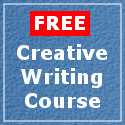 Hello everyone, welcome to the first session of our free online creative writing course. Over the next eight sessions we will be looking at different aspects of creative writing and trying our hand at various forms. I’d strongly encourage you to have a go at the exercises along the way, and please feel free to leave comments or ask questions at the end. If you have arrived on this page without first reading the home page and frequently asked questions page (on tab above) please go back and do so now. If you have read them, enjoy the course!
Hello everyone, welcome to the first session of our free online creative writing course. Over the next eight sessions we will be looking at different aspects of creative writing and trying our hand at various forms. I’d strongly encourage you to have a go at the exercises along the way, and please feel free to leave comments or ask questions at the end. If you have arrived on this page without first reading the home page and frequently asked questions page (on tab above) please go back and do so now. If you have read them, enjoy the course!
Creativity and Art
What is creativity? The Collins dictionary defines it as ‘the ability to cause something to exist’. Without getting into too much of an existential discussion, I would say that with every thought that is expressed, something has been created. It was Descartes who said: ‘I think, therefore I am’; well I would add, ‘I think, therefore I create’ (do you feel a God complex coming on?). But how do we express our thoughts? Sometimes we do it verbally, other times by body language and still again through what is loosely termed ‘art’.
Art takes place when a thought is expressed and fixed in a way that other people may experience it on an aesthetic level – through music, writing, painting, sculpture, choreography and so on. Many artists say that their best work takes place when they ‘by-pass’ the thought and simply express the feeling. This may be true, but for writers, who use a verbal medium, a feeling must first be converted into a thought before it can be put into words. Don’t over analyse the thought before you express it, as this way you can ‘channel’ the purest interpretation of the feeling, but some cognitive process needs to take place. Some writers prefer to mull over a thought and give it form before they put pen to paper – I’m one of them – but it’s good practice to try and switch off the ‘editor’ at least for the first draft. First response trigger exercises are useful in this regard and can release some unexpected words and images.
Exercise 1:
Write down your first response to these words or phrases:
- Blue ball
- And that’s when the sadness came
- Coffee
The first task of a good writer is to convert feelings into thoughts and then into words. This is the raw material that can then be converted into something more permanent. Some writers refuse to toy with their first drafts, believing their creativity will be diluted; I disagree. Allowing your critical mind to improve a piece of writing is where the craftsman meets the artist. Something produced only by the former will lack soul and something by the latter will lack form. Good writing is a combination of art and craft.
For public consumption
Art, of course, is highly subjective and one woman’s masterpiece is another woman’s unmade bed. We all have the ability to create, but whether or not our creation is ‘art’ must be left to the eye or ear of the beholder.
In this session we will look at how you can craft those creative thoughts into creative writing to share with other people. And that’s what sets ‘public’ writing apart from ‘private’ scribblings – there’s a perceived readership in mind. When I ramble on in my journal, I am the only one who will read it (hopefully!) so my only concern is getting my thoughts down on paper. The moment I want someone else to read it I begin to consider ways to improve the presentation and craft it into something more aesthetically pleasing. I consider which words may sound more colourful, whether or not my sentence structure is grammatically correct, whether I’m using evocative imagery, and so on.
Story, feeling or image?
What is it about those creative thoughts that you think might be of interest to other people? Do they speak of an eternal truth or a common experience? Do they make you laugh or cry? Do they suggest a story that will entertain or a poem that captures a moment that must be shared?
Exercise 2: In 50 words or less write down why you want to write then list three creative thoughts that you’ve had lately (each 10 words or less). These may be an image, a musing, a ‘truth’, a story, or so on. If you haven’t had any, take yourself for a walk and look around; what grabs your imagination? Browse through a newspaper or a magazine; do any stories or pictures catch your attention? Think back over your day; did anything funny, charming, shocking or unusual happen to you or someone you know?
Poetry or prose?
Some people are more suited to writing poetry than prose and some people do well at both. Although we won’t be discussing it in this course, other people are more suited to script. I’m one of them. I’ve had relative success as a prose writer and in fact have managed to earn a living from it, but it’s taken years of hard work to get to this point. I recently branched out into scriptwriting and found that I had much more of a natural ability. (If you’re interested in finding out more about scriptwriting, check out getting started in playwrighting). You may find that you’ve been trying to make it as a poet when actually you’re more suited to prose. Now I don’t want to pigeonhole anyone, but ask yourself the following questions:
- Are you more attracted to films than stills?
- Do you enjoy telling people ‘stories’ from your life?
- Do you prefer to read stories or poems?
If yes, to these, then you may be more suited to prose than poetry. If no, then the opposite may be true. If it’s ‘sometimes yes, sometimes no’ then perhaps you are suited to both. We shall be looking at how to write poems in more detail in session 7, but suffice to say, a poem is like a snapshot of a moment. If you can’t rest until you know what happened before and after, then prose may be your genre.
Exercise 3: Take one of the three creative thoughts you wrote down in Exercise 2, then list 20 separate words that communicate or describe that thought. Do not, at this stage, link the words into sentences. Once you have your 20 words use them in a poem of 16 lines or less. Then, take the same 20 words and work them into a short story of under 300 words. Which exercise came more easily? Which form has best communicated your creative thought?
Further Resources:
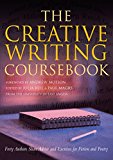
There are some excellent resources out there for creative writers. To get quick ‘starter’ images when your own well is dry I recommend The Writer’s Block by Jason Rekulak. I’m currently working through The Creative Writing Coursebook by Julia Bell and Paul Magrs and finding it very useful.
The next creative writing course session is how to write a short story. But before you move on to that, please feel free to leave a comment or ask a question in the box below.
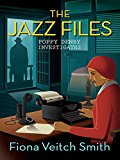
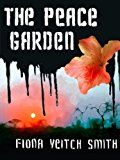
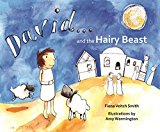
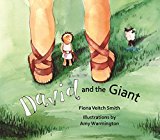
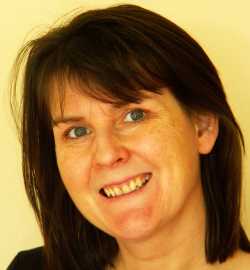 Welcome to The Crafty Writer's free online creative writing course, presented by Fiona Veitch Smith, a freelance journalist, editor, author, playwright, screenwriter and writing teacher. I hope that you'll see a dramatic improvement in the quality of your writing as you work through this course.
Welcome to The Crafty Writer's free online creative writing course, presented by Fiona Veitch Smith, a freelance journalist, editor, author, playwright, screenwriter and writing teacher. I hope that you'll see a dramatic improvement in the quality of your writing as you work through this course.
I found the first lesson to be an excellent experience. I don’t have a lot of spare time and this was exactly what I was looking for. I was able to fully understand and complete the lesson in a very short amount of time and learned what I believe was your intention: to open up the flow of ideas quickly. And it was easier than I thought! Thank you so much for this material and the work you have put into it. I intend to continue the remaining lessons throughout the week.
Tammy Peirce
Glad it did the job Tammy. Happy writing.
I’m happy to find this kind of course. I can do it at my own schedule, it’s not overly-involved, it covers the basics of different types of writing, and it helps me to evaluate myself.
I found this first lesson to a helpful introductory, and I’m happily anticipating working the rest.
Thanks for the time you put into this site>
Thank you, Fiona. I just completed Session 1. I had forgotten how exhilariting writing can be. I haven’t written anything in a couple of months. The exercises were a godsend. I can’t wait to practice my craft during the next several sessions.
Glad it helped Pat. Keep on writing.
Fiona
Glad it helped Pat. Keep on writing.
Fiona
so far this site is awesome. i am new to writing and am looking forward to the next assignment. I still must finish exercise three. Thank you for making this free!
thank you i like this site as its really useful i m trying to write a fiction and i think i can do well. i m already writing poem as well.
I want to write because I want to share with other people many interesting moments in my heart. Given that writting is an art form that does not necessarily requires skills developed from childhood, I choose it as a channel to let out beautiful, weried, subtle, and powerful imagination in hope of awakening people’s inner ability to know themselves and other people. I will keep an eye on this site. Thank you so much. !
This is a great refresher course for getting back into the habit of writing! It’s exactly what I need to rekindle the passion that I had before the full-time job and just life in general got in the way. The structure and exercises to follow are great, as I haven’t had enough discipline of my own to get started again. For the first time in a long time, I feel like I can do this again. Thanks a bunch!:)
Then it’s mission accomplished on my part Judi. Happy writing!
first time trying to write anything. so far i have enjoyed the steps. hopefully the course helps me understand my writing, to create an idea. the exercises are really good. thankyou.
Hi,I have just started this course and would like some honest opinions and thoughts about my writing so I am posting my answers to exercise one;please feel free to let me no what you really think.The first part of exercse one is below:
CREATIVE WRITING COURSE
LESSON ONE:
EXERCISE ONE:
Write down your first response to these words or phrases:
* Blue Ball
* And that’s when the sadness came
* Coffee
BLUE BALL:
At first impulsive thought a blue ball is quite a simple everyday object; a sphere of blue coloured plastic which you would normally find in a children’s toy box. That first thought may seem obvious though adult eyes; however have you ever thought about this same simple everyday object through the eyes of a child. For a child transferring from the baby to toddler stage (when their brain becomes a sponge to soak up as much knowledge as they can which is then stored for later life), this object is like a major discovery. How it is used obviously depends on the child, their age, and their development. For example a younger child who is teething will see it more as an object to put to their mouth, bite and cut their teeth on. Progressing to a toddler it becomes a whole new discovery which encourages the development of their gross motor skills through learning to throw, catch, roll and chase after this brightly coloured sphere which they use as a tool to learn and develop skills which they will then use without even thinking in everyday life. Sometimes when adults look at an object as simple as a ball they probably just see it as an obstacle to trip over, pick up or put in their child’s toy box; but perhaps if adults try to look at this normal everyday object through the eyes of their children maybe they would learn something too. Moving this theory on once the child enters school and begins their journey into their education (which will later greatly influence all aspects of their life, for example, whether they go on to further education and what career path they chose) this object then takes on a new journey of discovery. Think for example of geography lessons, the simple blue ball then becomes a global map of the world, imaging this through the eyes of the child this becomes not just a geography lesson but a whole new giant world to explore. This will not only instil in them the geography and educational aspects of the global world but may also inspire an ambition to travel and discover a whole new giant world that they have only just discovered exists. Just imagine being a young child just starting school and discovering that your world so far containing not only parents, family members and friends but now contains teachers new friends and a whole new giant world of major discovery. Thinking like this most adults would say what a fantastic position to be in starting your journey of major discovery that will continue constantly throughout your life. Unfortunately as adults we seem to lose our sense of adventure and our nature of exploration instead getting bogged down with work, bills, family commitments and the school run; but just for a few minutes close your eyes and put yourself in a classroom as a young child and revisit your exploration skills; try it you never know you might learn something. Ignite your exploration and discover skills through the eyes of a child and you too will discover a whole giant global world of discovery that you can get excited about and interested in. Some may see this exercise of imagination as childish, a waste of valuable time and just plain ridiculous but I would suggest you try it; you never know you might surprise yourself with what you discover and learn. Try it if you dare, give in to your inner child just for a few minutes and take a break from all the hustle and bustle of everyday life. Ignite the flame of youthful exploration and discover inside yourself and see what you discover.
Thank You in advance,I look forward to your comments and opinions.
Hi,I have just started this course and would like some honest opinions and thoughts about my writing so I am posting my answers to exercise one;please feel free to let me no what you really think.The second part of exercse one is below:
CREATIVE WRITING COURSE:
LESSON ONE (CONTD):
EXERCISE ONE (CONTD):
Write down your first response to these words or phrases:
* Blue Ball
* “And that’s when the sadness came”
* Coffee
“AND THAT’S WHEN THE SADNESS CAME“:
In our modern day world of gadgets and technology it is very easy to forget about some of the greatest inventions ever made; maybe this is because the inventors themselves are either long dead and forgotten or unknown. You are probably sat at your PC/laptop with your central heating on drinking a cup of coffee that was made in seconds (me too). By now you are probably wondering which inventions and inventors I am talking about. The inventions I am referring to are human beings, animals, thoughts, feelings, the world around us, bodily function and processes (I.E. the ability to get pregnant and give birth) ETC. ETC. I believe that the reason the inventors of these things are forgotten because they are either dead, unknown or disputed; for example, the earth around us comes down to the many theories developed by both science and human thoughts. Take the world around us; this issue for the majority of people normally comes down either God created the world and everything in it or the big bang theory invented by the scientific boffins. Despite your believes as to who was responsible; have you ever wonder who invented thought processes and feelings. Who developed being happy, sad, elated, depressed, worried, ETC. ETC. Someone must of original discovered feelings they can’t just come about from nowhere. Imagine a world without feelings and thoughts; it would bring us down to a race of humanoid robots with nothing to do, no conversation, no opinions and no relationships; in short the world and the human race would just become a highly scientific machine which would just go through the motions of life rather than actually live it. Moving on from this theory someone must have also invented not only money but the means to earn it, for example who invented schools, colleges, universities, exams, qualifications and actual jobs themselves, someone must of done but I bet the majority of people (including myself) would not be able to name these inventors without doing a great deal of research probably online (another great inventions which has become an everyday expectation. Also I have often wondered who developed the structure of our society, for example “The Royal Family, “The Government”, “Our police and legal system, these things which are the main underpinning of the society that we all take for granted must have been developed by a human being (an extremely clever human being as I’m sure you’ll agree). Also when you look at the news and events occurring in our society everyday who was it that decided who would starve and who would be fed. “Human rights” are an issue which is constantly brought into our society everyday; more often that not people who have had their “human rights” not only taken away but totally destroyed. There is a saying that comes to mind in these situations “There but for the grace of God go I”, while I am not a religious person (I don’t follow any conventional religion or necessarily believe in God; however I do believe in a superior being or authority) this saying surely makes people realise that when they are sitting in there comfortable warm houses watching the TV or play games or surf the net on their PC’s with all the food and drink they can fit into there cupboards, not only are there people who are poorer than others, there are people who have nothing. Thinking along the theme of “And that’s when the sadness comes”; I watched a documentary recently about Kenya and tourism and what the tourists don’t see or realise is going on. There were people working in five star hotels serving other people for twelve hours a day seven days a week for a salary which is a pittance. Not only were these people paid next to nothing they were going home to live in ram shackled huts with a blanket on the floor, no food and only dirty water to drink. Surely when we see things like this happening around us that is when the sadness comes. I once read that 25% of the worlds population eat 75% of the worlds food; if this was more evenly distributed that we would have a lot less people in our world having there not only their “human rights” taken away from them but also their dignity. Some people reading this will probably be thinking yes ok but that’s what charities are for and I donate to charities so therefore I am helping these people. It is true that there are charities who try and help people living in squalor facing starvation, dehydration and diseases through no fault of there own; there is only so much these charities can do to meet even the basic human requirements of these people and to me that is where the sadness really comes from. Coming back to my earlier theory it is hard to believe but also completely true that someone invented both sadness and these terrible conditions that some people have to face everyday. While it is really sad that these people have to live like this I feel that what is more sad that someone invented and allowed people to live like this and that is where the sadness really comes in.
Thank you in advance.I look forward to your honest thoughts and opinions.
Just to clarify Mandy, other users may want to comment on your writing but I cannot. I provide a free course but not free critiques. Please see my note on the contents page of the course in this regard.
Fiona
A really helpful first few steps, thanks for being so generous in creating this free resoure, I’ve been a frustrated beginner writer for a long time and am finally committed to having proper go, your website is helpful in its guidance.
Lucy Parry
You’re welcome Lucy and PA.
These exercises so far have really got the creative juices following thank you.
Hi Fiona,I totally understand that a professional like you doesn’t offer free critiques;I read the notes on the course before I started.I am really enjoying this course and think it’s fantastic that you provide it free.I was asking for opinions from the people who are also taking this course.Thank you again for provideing such a course for free;I really appreciate it.Mandy
Hopefully someone will reply then. Perhaps you should preface your comments with ‘To all fellow students …’ so they know it’s not me you’re asking. Good luck!
Hi Mandy
I’ve just read your responses to Fiona’s Excercise 3. Interesting but not, in any way shape or form a ‘short story’. I also write, or try to, and what I learnt very early on was – follow the instructions given. Although your thoughts are interesting, I’m sorry but neither example is a short story.
PS I am hoping to improve my own writing too.
Hi Yvonne,I totally appreciate your comments & thank you for taking the time to both read my work and leave a comment. I wasn’t aware that my answer was supposed to be a short story as this was not mentioned in the question.I let my imaginations lead me and my work was the result.
Hi Yvonne,
Creativity and Art
What is creativity? The Collins dictionary defines it as ‘the ability to cause something to exist’. Without getting into too much of an existential discussion, I would say that with every thought that is expressed, something has been created. It was Descarte who said: ‘I think, therefore I am’; well I would add, ‘I think, therefore I create’ (do you feel a God complex coming on?). But how do we express our thoughts? Sometimes we do it verbally, other times by body language and still again through what is loosely termed ‘art’.
Art takes place when a thought is expressed and fixed in a way that other people may experience it on an aesthetic level – through music, writing, painting, sculpture, choreography and so on. Many artists say that their best work takes place when they ‘by-pass’ the thought and simply express the feeling. This may be true, but for writers, who use a verbal medium, a feeling must first be converted into a thought before it can be put into words. Don’t over analyse the thought before you express it, as this way you can ‘channel’ the purest interpretation of the feeling, but some cognitive process needs to take place. Some writers prefer to mull over a thought and give it form before they put pen to paper – I’m one of them – but it’s good practice to try and switch off the ‘editor’ at least for the first draft. First response trigger exercises are useful in this regard and can release some unexpected words and images.
Exercise 1:
Write down your first response to these words or phrases:
•Blue ball
•And that’s when the sadness came
•Coffee
The first task of a good writer is to convert feelings into thoughts and then into words. This is the raw material that can then be converted into something more permanent. Some writers refuse to toy with their first drafts, believing their creativity will be diluted; I disagree. Allowing your critical mind to improve a piece of writing is where the craftsman meets the artist. Something produced only by the former will lack soul and something by the latter will lack form. Good writing is a combination of art and craft.
WHERE DOES THIS EXERCISE SAY THAT IT IS NECESSARY TO WRITE A SHORT STORY AND TO TURN OFF YOUR INTERNAL EDITOR AND LET YOUR IMAGINATION WANDER.PLEASE CORRECT ME IF I’M MISSING THE POINT.MY ANSWER WAS QUITE SHORT TO BE EXACT IT WAS 250 WORDS LONG.WHILE I APPRECIATE HONEST COMMENTS I’M AFRAID THAT I DO NOT AGREE THAT THIS QUESTION REQUIRES A SHORT STORY IN THE ANSWER.I ALSO GOT MY PARTNER TO READ MY WORK AND YOUR COMMENT AND HE COULDN’T UNDERSTAND WHY YOU THOUGHT IT SHOULD BE A SHORT STORY EITHER.
P.S. to the last message I sent to Yvonne; my answer was 650 words not 250,I apologise for this typing error.
the exercise 1. given for Writing down first response to these words or phrases:
blue ball = earth
And that’s when the sadness came = when i lost that i always craved for.
Coffee = ????
can you give remarks some suggestions on that.
Sorry Sana, I don’t respond to the exercises (please read my comments about this on the FAQ page). But other students can do so.
I have paid for a writing course in years past, blogged for many years, joined writing sites but have never really got into my writing because I have not reached a good standard to get paid for it. I just haven’t beeb disciplined enough, I guess. I have not got into fictional short stories; thats where I should concentrate on I believe. I have forgotten my own advice – write,write,write. And then edit,edit,edit! I think I should get back into Qondio and do some more researched writing too. But that is non-fiction. What is the best thing to do as a fictional writer?
Same advice Peter – write, write, write then edit, edit, edit. But also take time out and let things simmer. I’ve recently just picked up a novel I wrote ten years ago. It never got published. But it is only now that I see why. Distance sometimes can give you the critical insight you need. Also, have more than one project on the go at the same time. Sometimes it’s difficult to tear away from one thing to do another, but I believe it’s healthy. Anyway, that’s my tuppenceworth, other people no doubt have their own advice. Keep writing.
Fiona
Just finished the first lesson. Perhaps I cheated a little bit, because my three ‘creative thoughts’ were the ideas for three novels I want to write. Creativity is not, I believe, my problem. I think what I really need is some lessons in creating a story arc. I’m hoping that comes in a later lesson. Meantime, here are my poetry and prose exercises. Realize Ms. Smith won’t be commenting, but perhaps others would like to do so.
My words were: dark violent rogue plots hunted military bad power technology twist hero used honor hunting selfless impossible cost protection corrupted and deluded.
The dark, violent rogue plots as he is hunted,
His military technology lending a twist of power
That makes him bad.
The hero, his honor used and abused,
Hunting, because he is selfless.
Impossible, the cost of protecting,
The Deluded from the Corrupted.
In the dark of an uncaring, deluded public, the rogue VAMPIRE plots the violent overthrow of the government. He twists his military technology to harm those he once protected. His power has corrupted him, turning to bad his every thought and intention. But he does not know that he is hunted by a hero; a man whose honor has been used, but who remains selfless in his hunting, paying the impossible cost to keep us under his protection.
Please let me know what y’all think. I guess I wrote more of a teaser than a short story.